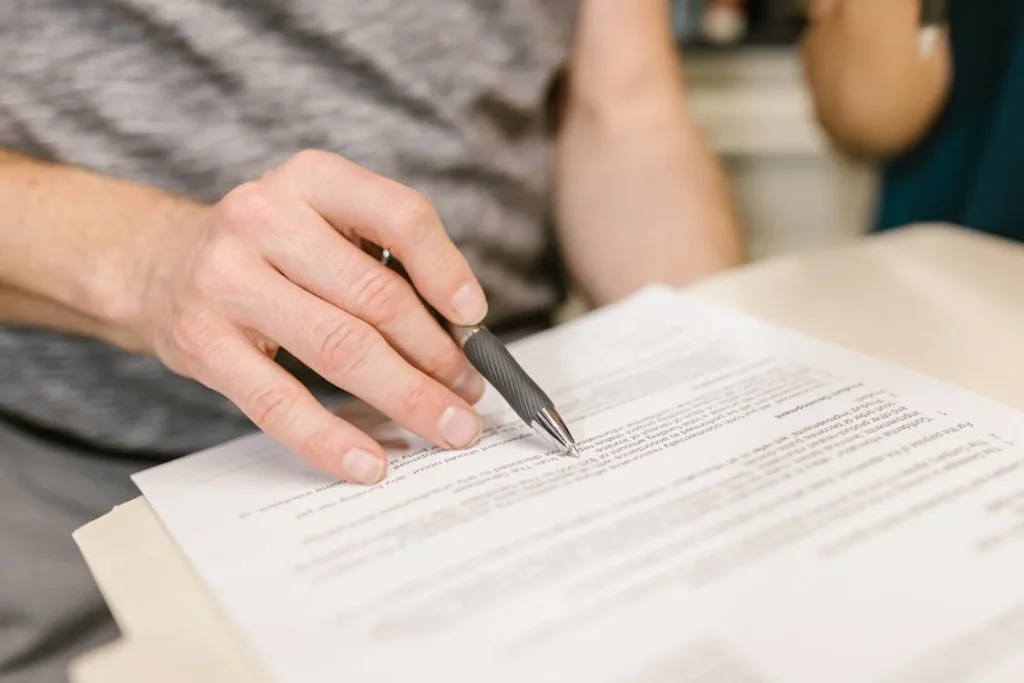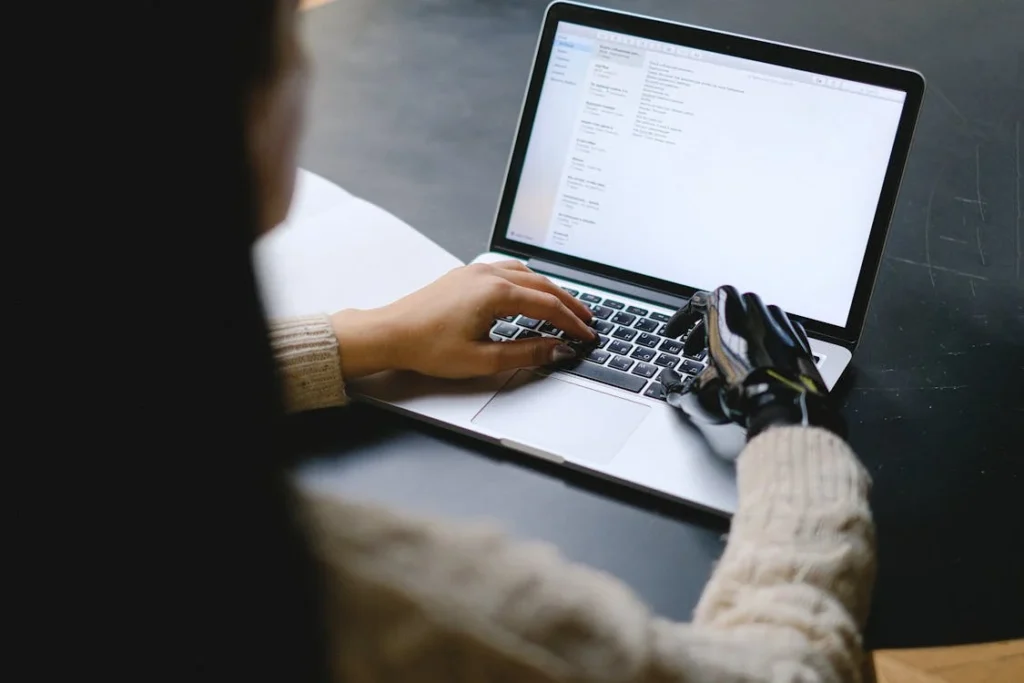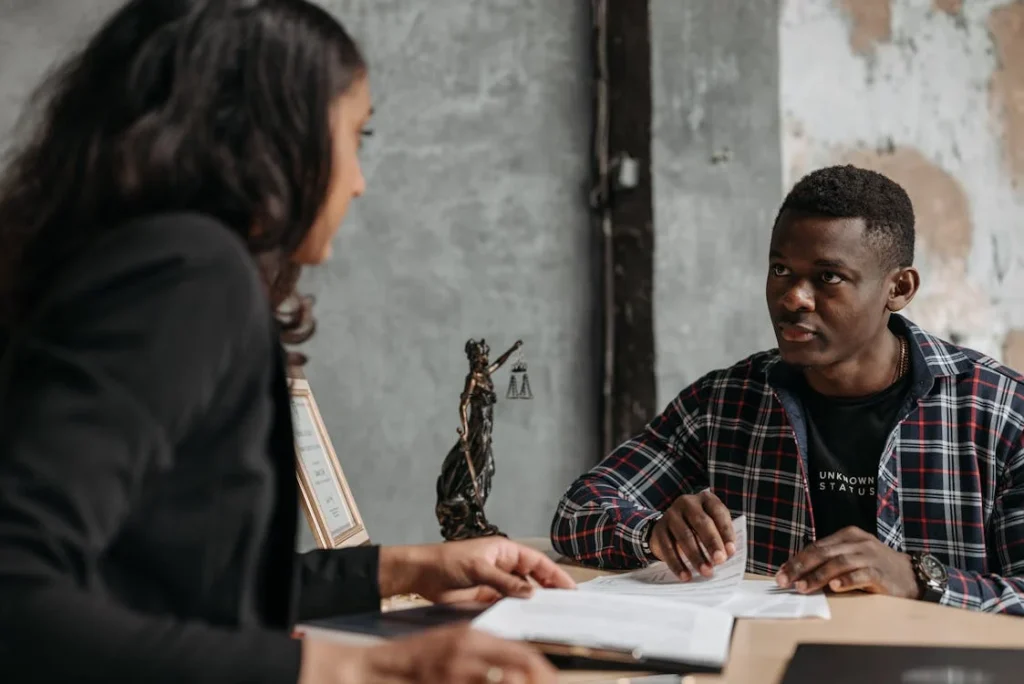Living with a disability comes with many challenges, but one of the biggest hurdles is understanding and accessing legal rights. In India, people with disabilities are protected by several laws that ensure their right to education, employment, accessibility, and financial assistance. However, navigating the legal system can feel overwhelming, especially when dealing with discrimination, workplace issues, or difficulties in accessing government benefits.
The good news is that free or low-cost legal aid is available to help people with disabilities fight for their rights. Whether you need help with disability pensions, job discrimination, accessibility in public places, or any other legal issue, there are ways to get support.

Understanding Your Legal Rights as a Person with a Disability
The Laws That Protect You
In India, people with disabilities have strong legal protection under various laws that ensure their rights are upheld in different areas of life.
One of the most important laws is the Rights of Persons with Disabilities (RPwD) Act, 2016, which covers everything from employment and education to accessibility in public places.
This law recognizes 21 types of disabilities and mandates that government and private institutions provide equal opportunities.
If a workplace refuses to hire someone because of a disability or a school denies admission to a child with special needs, this law provides a way to challenge such discrimination legally.
Another crucial law is the Persons with Disabilities (Equal Opportunities, Protection of Rights and Full Participation) Act, 1995, which, although now replaced by the RPwD Act, laid the foundation for disability rights in India.
The Mental Healthcare Act, 2017 is also relevant, as it provides rights and legal protection for individuals with mental illnesses, ensuring that they receive proper care without discrimination.
For those facing employment discrimination, the Equal Remuneration Act, 1976, and the Maternity Benefit Act, 1961, are also relevant because they prevent unfair treatment based on gender and disability.
If you are fighting for financial benefits, the National Trust Act, 1999, helps individuals with disabilities get guardianship and financial security.
Understanding these laws is the first step in ensuring that you can assert your rights when needed. Many people do not know that they have legal backing when facing discrimination or inaccessibility. Knowing what protections exist can help you take action.
Common Legal Issues Faced by People with Disabilities
People with disabilities in India face many legal challenges, often due to a lack of awareness about their rights or because organizations do not follow the laws.
One of the most common problems is workplace discrimination. Many companies are still hesitant to hire people with disabilities, even though the law requires them to reserve at least four percent of government jobs for persons with disabilities.
If you have been denied a job or promotion because of a disability, you have the right to file a complaint and seek legal action.
Accessibility remains another major concern. Public places such as schools, hospitals, and government offices are required to be accessible, yet many buildings still lack ramps, elevators, or accessible restrooms.
Public transport is often not designed for people with mobility impairments. If a government office, school, or hospital refuses to make necessary accommodations, they can be held legally accountable.
Another issue that people frequently face is denial of government benefits. Many individuals are entitled to disability pensions, medical benefits, or scholarships, but they struggle with excessive paperwork and delays in approval.
In some cases, applications are rejected unfairly. If you are facing these issues, legal aid can help you challenge unfair decisions.
Education is another area where discrimination often occurs. Schools and universities are required to provide reasonable accommodations, such as extra time for exams, assistive devices, and accessible classrooms.
However, many institutions fail to meet these requirements. If a student with a disability is denied admission or proper support, legal intervention can help.
Apart from these issues, people with disabilities may also face struggles related to property disputes, inheritance rights, and financial exploitation. In such cases, seeking legal aid can be the best way to ensure that your rights are protected.
The Importance of Legal Aid
Legal aid is crucial because it ensures that people with disabilities can assert their rights without the burden of high legal fees. Many people avoid taking legal action because they believe the process is too expensive or complicated.
However, in India, several government and non-government organizations provide free or affordable legal assistance to ensure that everyone has access to justice.

Where to Find Legal Aid for Disability-Related Issues in India
Government Legal Aid Services
The Indian government provides free legal aid to people with disabilities through the National Legal Services Authority (NALSA) and State Legal Services Authorities (SLSA).
These organizations were created to ensure that people who cannot afford legal fees still have access to justice.
Every district in India has a District Legal Services Authority (DLSA), which provides free legal aid to marginalized groups, including people with disabilities.
If you need legal assistance, you can visit the nearest DLSA office, usually located within the district court premises. They can help with issues related to employment discrimination, denial of benefits, accessibility complaints, and other legal matters.
In addition, the Legal Services Clinics run by law colleges and NGOs provide free legal advice and representation. Some clinics even have mobile legal aid units that visit rural areas to ensure that legal help is accessible to everyone.
The Supreme Court Legal Services Committee (SCLSC) also provides free legal aid for cases that need to be heard at the Supreme Court level. If your case involves a constitutional right or a serious violation of disability rights, you can apply for assistance through SCLSC.
How to Apply for Government Legal Aid
If you need free legal aid, you can apply through your local Legal Services Authority by submitting a simple application.
You will need to provide basic details about your case and a disability certificate if applicable. In most cases, you can apply online through the NALSA website or visit the nearest DLSA office in person.
Once your application is accepted, you will be assigned a legal aid lawyer who will represent you free of cost. These lawyers are experienced in handling cases related to disability rights and can guide you through the legal process.
If you are unable to visit an office due to mobility issues, you can request a lawyer to visit your home or speak with you via phone or video call. The legal aid system is designed to be accessible, so don’t hesitate to ask for accommodations if needed.
Non-Governmental Organizations (NGOs) Offering Legal Help
Apart from government programs, several NGOs in India provide legal assistance to people with disabilities. Organizations such as Human Rights Law Network (HRLN), Vidhi Centre for Legal Policy, and Disability Rights India Foundation offer free legal aid and advocacy for disability-related issues.
HRLN has a dedicated team that handles disability rights cases, including discrimination in schools and workplaces, denial of medical care, and accessibility violations. They also help file Public Interest Litigations (PILs) to bring systemic change in disability policies.
Javed Abidi Foundation and National Centre for Promotion of Employment for Disabled People (NCPEDP) work closely with legal professionals to support individuals facing discrimination.
These organizations not only provide legal representation but also help file complaints with the Chief Commissioner for Persons with Disabilities (CCPD), a government body responsible for addressing disability rights violations.
Some disability-focused NGOs also run helplines where you can get free legal advice over the phone. If you are unsure about your legal options, speaking to a legal expert through one of these helplines can be a good starting point.
Seeking Legal Help for Workplace Discrimination
If you are facing discrimination at work due to a disability, you can file a complaint with the Equal Opportunity Cell of your company or directly with the Commissioner for Persons with Disabilities.
Every employer with more than 20 employees is required by law to have an Equal Opportunity Policy in place. If your employer refuses to provide reasonable accommodations, such as flexible work hours, accessible office space, or assistive technology, you can take legal action.
If your workplace is violating disability rights, you can approach the Labour Court or file a case under the Rights of Persons with Disabilities Act, 2016. With legal aid, you can get help in drafting a complaint and representing your case.

How to File a Legal Complaint for Disability Rights Violations
Filing a Complaint with the Chief Commissioner for Persons with Disabilities (CCPD)
If you are facing discrimination or your rights are being violated, one of the most effective ways to seek justice is by filing a complaint with the Chief Commissioner for Persons with Disabilities (CCPD).
This government body is responsible for ensuring that the Rights of Persons with Disabilities Act, 2016, is properly enforced.
You can file a complaint if you have been denied employment, refused reasonable accommodations at work or in education, faced inaccessibility in public places, or been mistreated by any government or private institution.
The process for filing a complaint is simple. You need to write a letter or email explaining your issue and include relevant documents, such as a disability certificate, job rejection letters, medical reports, or any other proof that supports your case.
You can send this complaint to the State Commissioner for Persons with Disabilities if the issue is at the state level or to the Chief Commissioner for Persons with Disabilities if the matter involves central government institutions or has wider implications.
Once the complaint is filed, the Commissioner’s office will investigate and take appropriate action, which may include ordering the responsible institution to comply with the law, providing financial compensation, or imposing penalties.
Approaching the Courts for Legal Action
If your case is serious and requires judicial intervention, you may need to approach a court. This can be done through a Public Interest Litigation (PIL), a civil suit, or by seeking intervention from the High Court or Supreme Court.
Public Interest Litigations (PILs) are often used to address systemic issues affecting a large number of people with disabilities.
If a public transport system is inaccessible, government buildings lack ramps, or a policy is discriminatory, PILs can bring about large-scale legal reforms. Disability rights organizations and legal aid groups can help you file a PIL if necessary.
For personal legal disputes, such as employment discrimination, denial of benefits, or medical negligence, you may need to file a civil suit. With legal aid, you can get a lawyer to represent you in these matters without any financial burden.
Filing a Workplace Discrimination Complaint
If you are experiencing discrimination at work, the first step is to file a complaint with your company’s Equal Opportunity Cell or Human Resources (HR) Department. Employers with more than 20 employees are legally required to have an Equal Opportunity Policy in place.
If your employer does not take action, you can file a formal complaint with the State Commissioner for Persons with Disabilities or take the matter to the Labour Court.
If you work in a government job, you can escalate the matter to the Central Administrative Tribunal (CAT), which handles disputes related to government employees.
If you are terminated from your job unfairly due to a disability, you have the right to challenge the decision in court. A legal aid lawyer can help you draft your petition and represent you during hearings.
Legal Remedies for Accessibility Violations
The law mandates that public places, transport systems, schools, and workplaces must be accessible to people with disabilities.
However, many buildings and services still do not comply with these rules. If you face inaccessibility issues, you can file a complaint with the Public Works Department (PWD), the Municipal Corporation, or directly with the State Disability Commissioner.
For serious cases where accessibility issues violate fundamental rights, filing a case in the High Court through a writ petition can lead to stronger legal enforcement. Many landmark disability rights judgments in India have come from such legal interventions.
Seeking Compensation for Disability Rights Violations
If you have suffered financial loss, emotional distress, or harm due to a violation of your rights, you may be eligible for compensation.
Courts in India have awarded financial compensation to people with disabilities who have been discriminated against, denied medical treatment, or faced workplace injustices.
To claim compensation, you need to file a legal suit with the help of a lawyer. Legal aid services can guide you through this process and ensure that you get fair treatment under the law.

Challenges in Accessing Legal Aid and How to Overcome Them
Lack of Awareness About Legal Rights
One of the biggest obstacles for people with disabilities in seeking legal aid is the lack of awareness about their rights. Many individuals do not know that laws like the Rights of Persons with Disabilities (RPwD) Act, 2016 exist to protect them from discrimination.
Without this knowledge, they may not realize that they can take legal action if they are denied a job, refused access to public places, or not provided with necessary accommodations.
The best way to overcome this challenge is through education and awareness. Disability rights organizations, NGOs, and legal aid clinics regularly conduct workshops and awareness programs.
Attending these programs, reading about disability rights, and consulting legal experts can help individuals understand their rights and the legal options available to them.
Difficulty in Accessing Legal Aid Services
Another challenge is the difficulty in reaching legal aid offices, especially for people with mobility impairments. While every district in India has a District Legal Services Authority (DLSA), not all of them are easily accessible.
Many offices lack ramps, elevators, or trained staff who understand the needs of people with disabilities.
To address this issue, some legal aid services offer home visits and online consultations. If you cannot travel to a legal aid office, you can request that a lawyer visit your home or schedule a video consultation.
The National Legal Services Authority (NALSA) also has a toll-free helpline that allows people to seek legal advice without visiting an office in person.
Delays in the Legal Process
The legal system in India is often slow, with cases sometimes taking years to resolve. This delay can discourage people from filing complaints or seeking justice.
Many disability-related cases, such as denial of benefits or workplace discrimination, require urgent action, but they can get stuck in bureaucratic processes.
One way to speed up legal action is by filing a complaint with the State Commissioner for Persons with Disabilities before taking the matter to court.
The Commissioner’s office is specifically set up to handle disability rights cases and can sometimes resolve issues faster than the traditional court system.
For issues like accessibility violations or workplace discrimination, filing a writ petition in the High Court can also lead to quicker intervention. Courts sometimes take immediate action if the case involves fundamental rights violations.
Fear of Retaliation
Many people with disabilities hesitate to take legal action against employers, schools, or government offices because they fear retaliation.
Employees may worry about losing their jobs, while students may fear being further discriminated against if they file complaints against their schools or universities.
However, the law protects individuals from retaliation. Under the RPwD Act, 2016, any form of victimization or harassment against a person for asserting their rights is illegal.
If someone faces negative consequences for filing a complaint, they can take additional legal action against the offending party.
Organizations like the Human Rights Law Network (HRLN) and National Centre for Promotion of Employment for Disabled People (NCPEDP) offer legal and emotional support to individuals facing retaliation.
Seeking help from such organizations can provide reassurance and protection while pursuing justice.
Financial Constraints
Although many legal aid services are free, some cases require additional expenses, such as court fees, documentation costs, and travel expenses. This financial burden can discourage people from seeking legal action.
Fortunately, there are provisions under the Legal Services Authorities Act, 1987, that allow people with disabilities to receive complete legal aid, including waivers for court fees.
Some NGOs also offer financial assistance for legal battles. If you are struggling with legal costs, reaching out to disability rights organizations can help you find funding options.
Overcoming the Barriers
Despite these challenges, there are many ways to ensure that people with disabilities get the legal support they need. Taking the first step—whether by calling a legal aid helpline, visiting a legal aid office, or reaching out to an NGO—can make a big difference.
With the right support, every person with a disability can fight for their rights and demand justice when those rights are violated.

Steps to Take When Seeking Legal Aid for Disability-Related Issues
Step 1: Identify Your Legal Issue
Before seeking legal aid, it is important to clearly identify the issue you are facing. Whether it is workplace discrimination, denial of benefits, lack of accessibility, or mistreatment in a healthcare facility, knowing the specifics of your problem will help you find the right legal assistance.
For example, if you are being denied a disability pension, you will need to approach authorities dealing with social welfare benefits.
If your child is facing discrimination in school, you may need to file a complaint with the education department or the Commissioner for Persons with Disabilities. Understanding the nature of your issue will save time and ensure you reach the right legal body.
Step 2: Gather Evidence
Having strong evidence can make a big difference in your legal case. If you were denied a job due to your disability, keep copies of rejection emails, job advertisements, and any communication with the employer.
If you are facing accessibility issues, take photographs or videos showing the lack of ramps, elevators, or other necessary facilities.
Medical documents, disability certificates, salary slips, and written complaints can also serve as important proof. The more evidence you have, the stronger your case will be when you approach a legal aid service.
Step 3: Contact a Legal Aid Service
Once you have identified your legal issue and gathered the necessary documents, the next step is to contact a legal aid service.
If you are seeking free government legal aid, you can visit the District Legal Services Authority (DLSA) office in your area or apply online through the National Legal Services Authority (NALSA) website.
If you prefer assistance from an NGO, organizations like the Human Rights Law Network (HRLN), Disability Rights India Foundation, and National Centre for Promotion of Employment for Disabled People (NCPEDP) provide free legal guidance.
They can help you draft complaints, file petitions, and even represent you in court if needed.
If you need urgent legal intervention, reaching out to the State Commissioner for Persons with Disabilities can be an effective option, as they have the authority to take immediate action in cases of discrimination or rights violations.
Step 4: File a Complaint or Petition
Depending on your case, the next step will involve filing a formal complaint or petition. If you are facing workplace discrimination, you may first file a complaint with your company’s HR department or the Equal Opportunity Cell.
If this does not resolve the issue, you can escalate it to the Labour Court or the Commissioner for Disabilities.
For accessibility violations in public places, you can file a complaint with the Public Works Department, Municipal Corporation, or the Disability Commissioner’s Office. If the issue is not addressed, you may need to file a Public Interest Litigation (PIL) or take the matter to the High Court.
For social welfare benefits such as disability pensions, scholarships, or healthcare assistance, you may need to approach the relevant government department first.
If your application is unfairly rejected, a legal aid lawyer can help you file an appeal or challenge the decision in court.
Step 5: Follow Up and Seek Support
Legal cases can take time, so it is important to regularly follow up on your complaint. Keep track of deadlines, attend hearings, and stay in touch with your lawyer or legal aid provider.
If you do not receive a response within a reasonable time, you can escalate the matter to a higher authority, such as the High Court or even the Supreme Court in extreme cases.
Throughout this process, seeking emotional and community support can be helpful. Disability rights groups, advocacy organizations, and support networks can provide guidance, encouragement, and additional resources to help you navigate the legal system.
Step 6: Use Media and Public Advocacy if Necessary
In some cases, bringing public attention to an issue can help speed up legal action. If your case involves widespread discrimination or systemic failures, disability rights organizations can help highlight your case in the media, bringing pressure on authorities to act.
Social media campaigns, news articles, and advocacy efforts can sometimes lead to quicker resolutions.

Conclusion
Accessing legal aid for disability-related issues in India is not always easy, but it is essential for ensuring justice and equality. People with disabilities have strong legal protections under the Rights of Persons with Disabilities (RPwD) Act, 2016, and other laws, yet these rights are often ignored or violated. The key to overcoming these challenges is awareness, persistence, and seeking the right legal support.
By understanding your rights, gathering evidence, and approaching the right legal authorities, you can take action against discrimination, accessibility violations, and unfair denial of benefits. Whether you seek free government legal aid through District Legal Services Authorities (DLSA), file complaints with the Chief Commissioner for Persons with Disabilities (CCPD), or get support from disability rights NGOs, there are multiple avenues available to fight for justice.
At Robobionics, we believe in empowering individuals with disabilities, not just through innovative prosthetic solutions but also by providing valuable information that helps them live independently and with dignity. If you or someone you know is facing challenges related to disability rights, do not hesitate to seek legal help.
If you are looking for advanced prosthetic solutions to improve your mobility and independence, explore Grippy™, our flagship 3D-printed bionic hand. Book a free demo today and take a step toward a more independent life.



